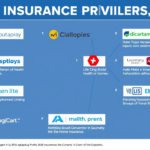Renters Insurance: What It Covers
When you’re renting a home or apartment, it’s easy to assume that your landlord’s insurance will take care of everything in case something goes wrong. However, that’s not quite how it works. Your landlord’s policy typically covers the building itself, but it doesn’t extend to your personal belongings or certain unexpected situations you might face as a tenant. That’s where renters insurance comes in—a simple, affordable way to protect yourself and your peace of mind. Let’s take a closer look at what renters insurance covers and why it might be worth considering.

Personal Property Protection
One of the main benefits of renters insurance is that it safeguards your belongings. Whether it’s your furniture, electronics, clothing, or kitchen appliances, this coverage steps in if your items are damaged or lost due to events like fire, theft, vandalism, or certain natural disasters (think storms or lightning). For example, if a pipe bursts and ruins your laptop or a break-in results in a stolen TV, renters insurance can help cover the cost to replace those items. It’s a small comfort knowing that the things you’ve worked hard for are protected, even when life throws a curveball.
Keep in mind that policies often have limits, and high-value items like jewelry or collectibles might need extra coverage, called a “rider,” to be fully protected. It’s a good idea to take inventory of what you own and check with your insurer to ensure everything important is accounted for.
Liability Coverage
Another key piece of renters insurance is liability protection. This covers you if someone gets hurt in your rental space and you’re found responsible. Imagine a friend slips on a wet floor during a visit and needs medical attention—liability coverage can help pay for their medical bills or even legal fees if they decide to sue. It also extends to damage you might accidentally cause to someone else’s property. For instance, if you accidentally start a small kitchen fire that spreads to a neighbor’s unit, this part of your policy could help cover the costs.
This coverage isn’t just about money—it’s about keeping stress at bay. Knowing you’re protected in these situations can make renting feel a little less daunting.
Additional Living Expenses
Life doesn’t always go as planned, and sometimes an event—like a fire or flood—can make your rental temporarily unlivable. Renters insurance often includes coverage for additional living expenses (ALE), which helps pay for things like a hotel stay, meals, or other costs you face while you’re displaced. It’s not about luxury; it’s about maintaining some normalcy until you can get back on your feet. Policies vary, so it’s worth checking how long this coverage lasts and what specific expenses are included.
What’s Not Covered?
While renters insurance offers a lot, it doesn’t cover everything. Damage from floods or earthquakes, for example, typically requires separate policies. Your roommate’s belongings also aren’t included under your policy—they’d need their own. And if your car gets stolen from the parking lot? That’s a job for auto insurance, not renters insurance. Understanding these gaps can help you plan ahead and avoid surprises.
Why It Matters
Renters insurance isn’t mandatory, but it’s a practical layer of security for anyone renting a space. It’s usually affordable—often less than $20 a month—and it can save you from significant financial headaches down the road. Plus, some landlords even require it as part of the lease agreement, so it’s worth checking your terms.
At its core, renters insurance is about protecting what’s yours and giving you a safety net for the unexpected. It’s not about fear—it’s about being prepared. If you’re renting and haven’t looked into it yet, take a moment to explore your options. A little coverage can go a long way toward keeping your life steady, no matter what comes your way.


